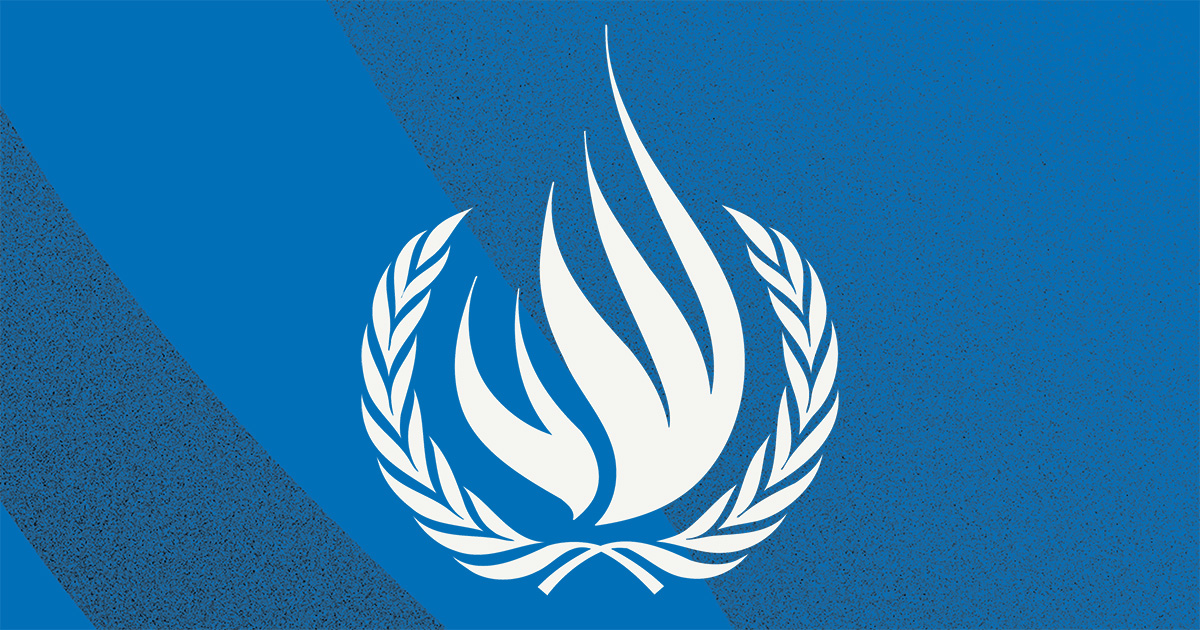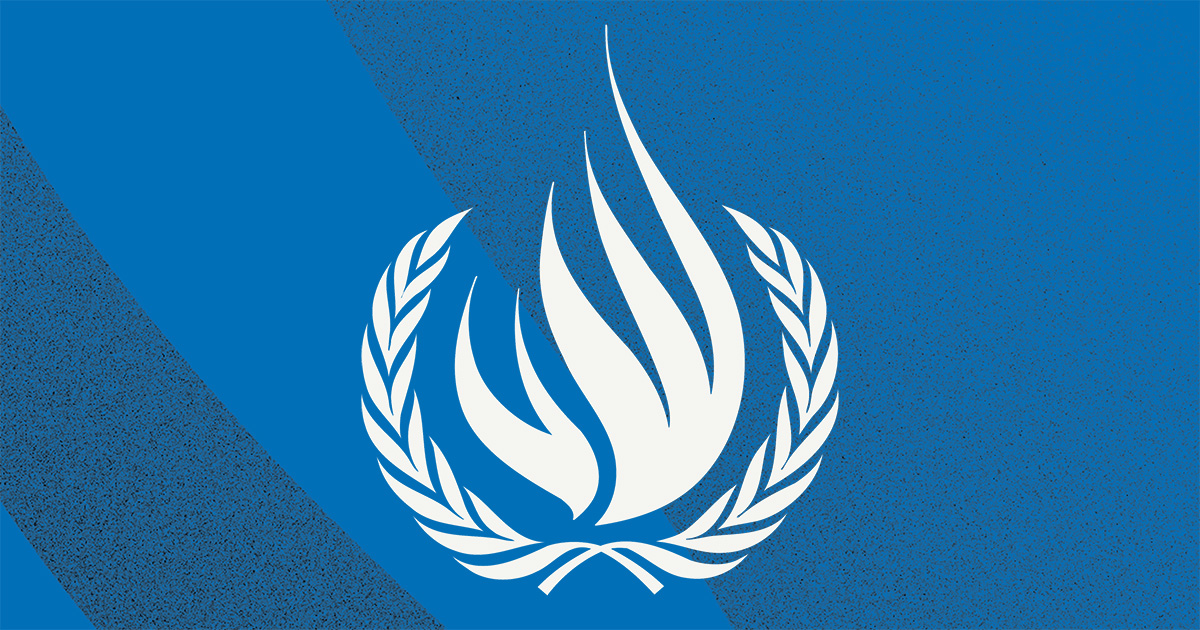
GENEVA (19 July 2021) – UN human rights experts today expressed their utmost concern for the situation of human rights defenders in Myanmar, and called for a stronger international response to the military coup, including coordinated sanctions and an arms embargo against the junta by an ‘emergency coalition of nations’.
“The brute force terror campaign we are witnessing in Myanmar continues to be directed towards human rights defenders,” said Mary Lawlor, the Special Rapporteur on the situation of human rights defenders, and Tom Andrews, the Special Rapporteur on the situation of human rights in Myanmar.
The experts highlighted credible information they had received concerning human rights defenders being forced into hiding after having arrest warrants issued against them under section 505(a) of the Penal Code. Their homes were raided, their possessions seized, and family members threatened and harassed. Many others, unable to flee, have been arbitrarily arrested, including labour rights defenders and student activists. Lawyers representing people detained following the coup have themselves been detained, as have journalists covering the protests.
“For years, human rights defenders have been doing essential work promoting human rights in the country,” Lawlor said. ”Since the coup, and despite enforced internet blackouts along with difficulties accessing basic resources, especially for defenders forced into hiding or living in rural areas, they have been documenting the mass violations being perpetrated by the military. As a result, they have been targeted,” the expert said.
“The people of Myanmar appreciate expressions of concern from the international community, but what they desperately need is action. It is critical that nations stand with and for the beseiged people of Myanmar who are being held hostage by an illegal military junta. It is time for strong, focused and coordinate action that includes economic sanctions and an arms embargo,” added Andrews.
Women have played a leading role in the protest and civil disobedience movement that has emerged in the country in response to the military"s seizure of the State apparatus in February, and the experts expressed particular concern for the situation of women human rights defenders in the country.
“We have heard from women human rights defenders from different ethnic groups in various areas of the country. Their bravery in continuing to speak out against the human rights violations being perpetrated by the military against the country"s population, coming as it does in the face of threats of gender-based violence and massive risks for their safety, is astonishing,” said Lawlor
“Women human rights defenders are particularly at risk in remote rural areas and are often beaten and kicked before being sent to prison where they can face torture and sexual violence with no medical care provided,” said the Special Rapporteur.
Over 892 men and women have been killed since the coup. “A more determined, unified international solidarity with human rights defenders in Myanmar is required to avoid further attacks," Andrews said.
Addressing the Human Rights Council in Geneva last week, Andrews called for the urgent formation of an “Emergency Coalition for the People of Myanmar“ to stop what he described as the military junta’s “reign of terror” in the country.
ENDS
Ms. Mary Lawlor, (Ireland) is the Special Rapporteur on the situation of human rights defenders. She is currently an Adjunct Professor of Business and Human Rights in Trinity College Dublin. She was the founder of Front Line Defenders - the International Foundation for the Protection of Human Rights Defenders. As Executive Director from 2001-2016, she represented Front Line Defenders and had a key role in its development. Ms. Lawlor was previously Director of the Irish Office of Amnesty International from 1988 to 2000, after becoming a member of the Board of Directors 1975 and being elected its President from 1983 to 1987.
Mr. Thomas Andrews (United States of America) is the Special Rapporteur on the situation of human rights in Myanmar. A former member of the US Congress from Maine, Mr. Andrews is a Robina Senior Human Rights Fellow at Yale Law School and an Associate of Harvard University’s Asia Center. He has worked with the National Democratic Institute for International Affairs and parliamentarians, NGOs and political parties in Cambodia, Indonesia, Algeria, Croatia, Serbia, Ukraine and Yemen. He has been a consultant for the National Coalition Government of the Union of Burma and the Euro-Burma Network and has run advocacy NGOs including Win Without War and United to End Genocide.
The Special Rapporteurs are part of what is known as the Special Procedures of the Human Rights Council. Comprising the largest body of independent experts in the UN Human Rights system, Special Procedures is the general name of the Council"s independent fact-finding and monitoring mechanisms that address either specific country situations or thematic issues in all parts of the world. Special Procedures experts work on a voluntary basis; they are not UN staff and do not receive a salary for their work. They are independent from any government or organization and serve in their individual capacity.
UN Human Rights, country page – Myanmar
For more information and media requests please contact: Pol Planas (Email: pplanas@ohchr.org / Tel. +4122 917 94 77)
For media enquiries regarding other UN independent experts, please contact Renato de Souza (+41 22 928 9855 / rrosariodesouza@ohchr.org).
Follow news related to the UN’s independent human rights experts on Twitter@UN_SPExperts.
Concerned about the world we live in?
Then STAND UP for someone"s rights today.
#Standup4humanrights
and visit the web page at http://www.standup4humanrights.org










